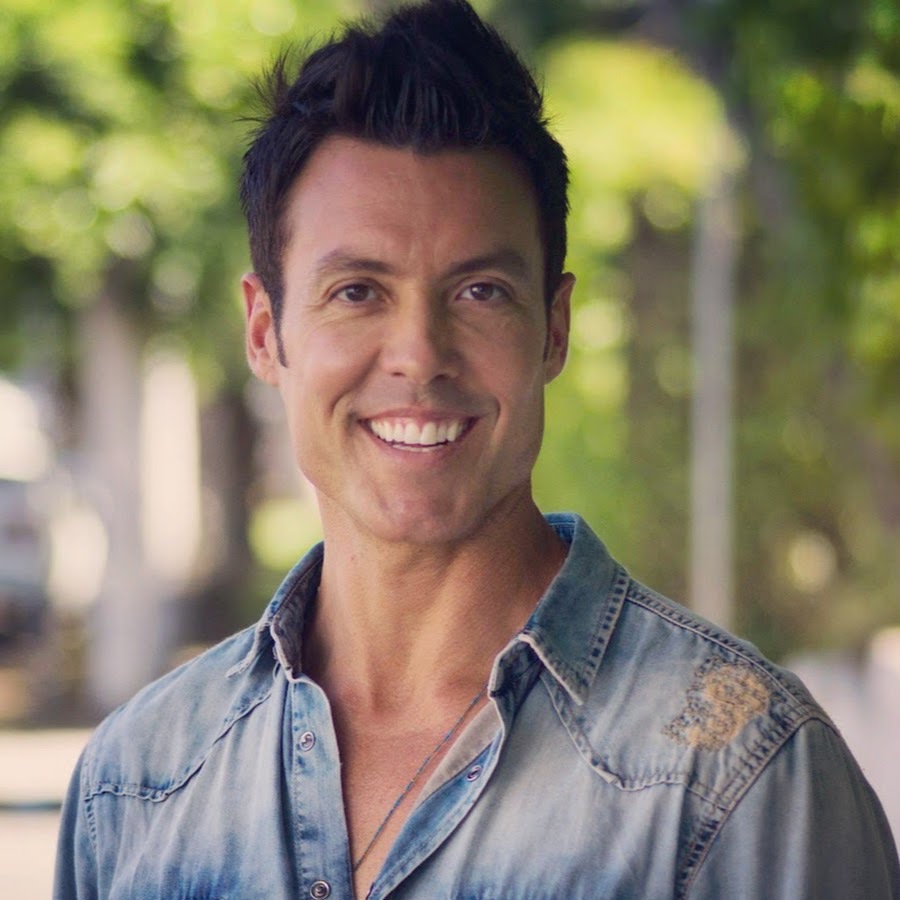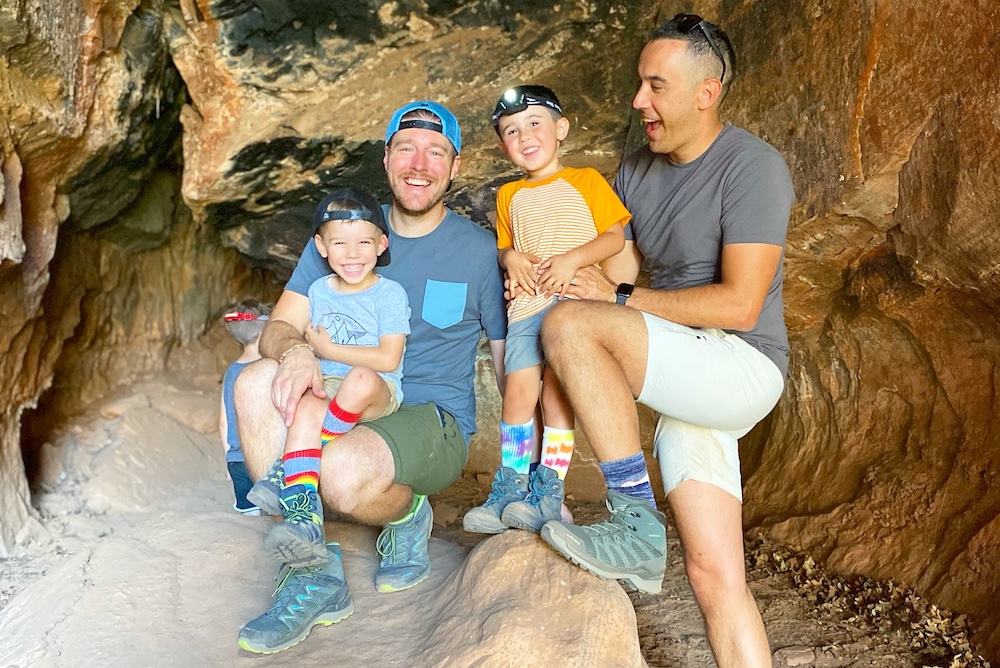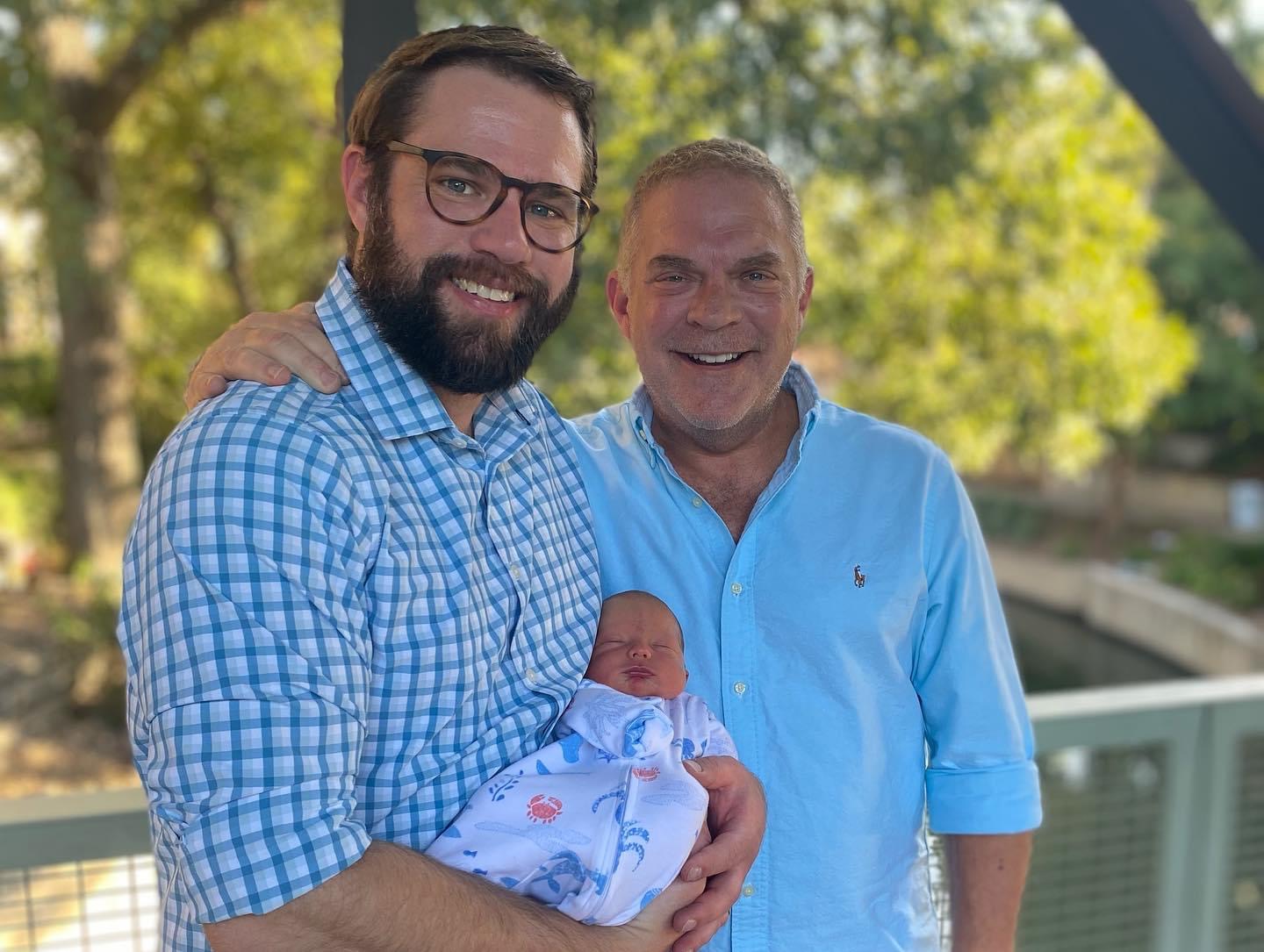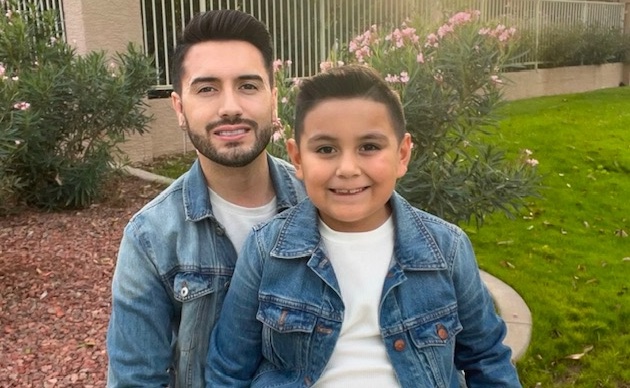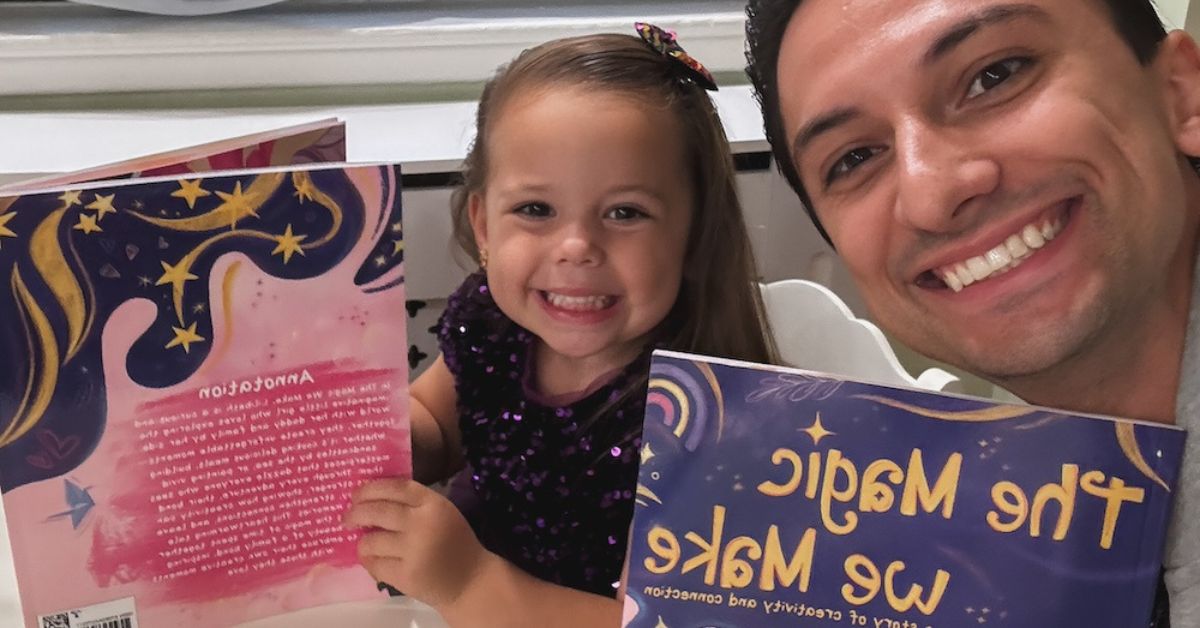Author, Chris Tompkins
Originally published May 14, 2021
If you’re reading this, chances are you’re gay. If you are, I have a question for you—do your nieces and nephews know you’re gay? How about your straight friends’ kids?
A friend of mine, Chris Tompkins, was taken aback by an innocent question asked by his six-year-old nephew during a family visit in Arizona: “Uncle Chris, do you have a girlfriend?”
This confused Chris because he’d been out to his family and siblings their entire lives. He wondered why his sister hadn’t mentioned this fact to his nephew. He asked her and she said, “He’s too young to understand.” Chris felt that if a child is old enough to ask the question, they’re old enough to receive an honest answer.
Chris started to wonder how common it is for parents to avoid having honest conversations with their children about sexuality, gender and identity. So he asked around and spoke to a variety of heterosexual and gay parents from all walks of life and found that they all had similar responses to his sister:
“My kids wouldn’t understand.”
“Kids are too young to process what being gay means.”
“No one talked to me about that stuff and I turned out okay.”
“I don’t really know how to explain it to them, so I just avoid talking about it altogether.”
“I don’t want to put ideas in their head.”
Naturally, these responses disturbed Chris. He realized there is still negative connotations around what it means to be gay or trans. So the first thing he did was pour his heart into a letter to his family to address a conversation that wasn’t taking place about him being gay.
From there, he set out on a journey to discover the reason why this happens, exploring the deeper, multi-faceted layers of homophobia to understand how it is that in 2021 these topics are still considered taboo. (Editor’s note: And even more so in 2022, with the passage of Florida’s so-called ‘Don’t Say Gay’ bill.)
Chris’ learnings led to writing a thought-provoking article published on The Huffington Post (read here), a fascinating TEDx talk (watch here), and an enlightening, and much-needed new book called Raising LGBTQ Allies: A Parent’s Guide to Changing the Messages from the Playground (order here).
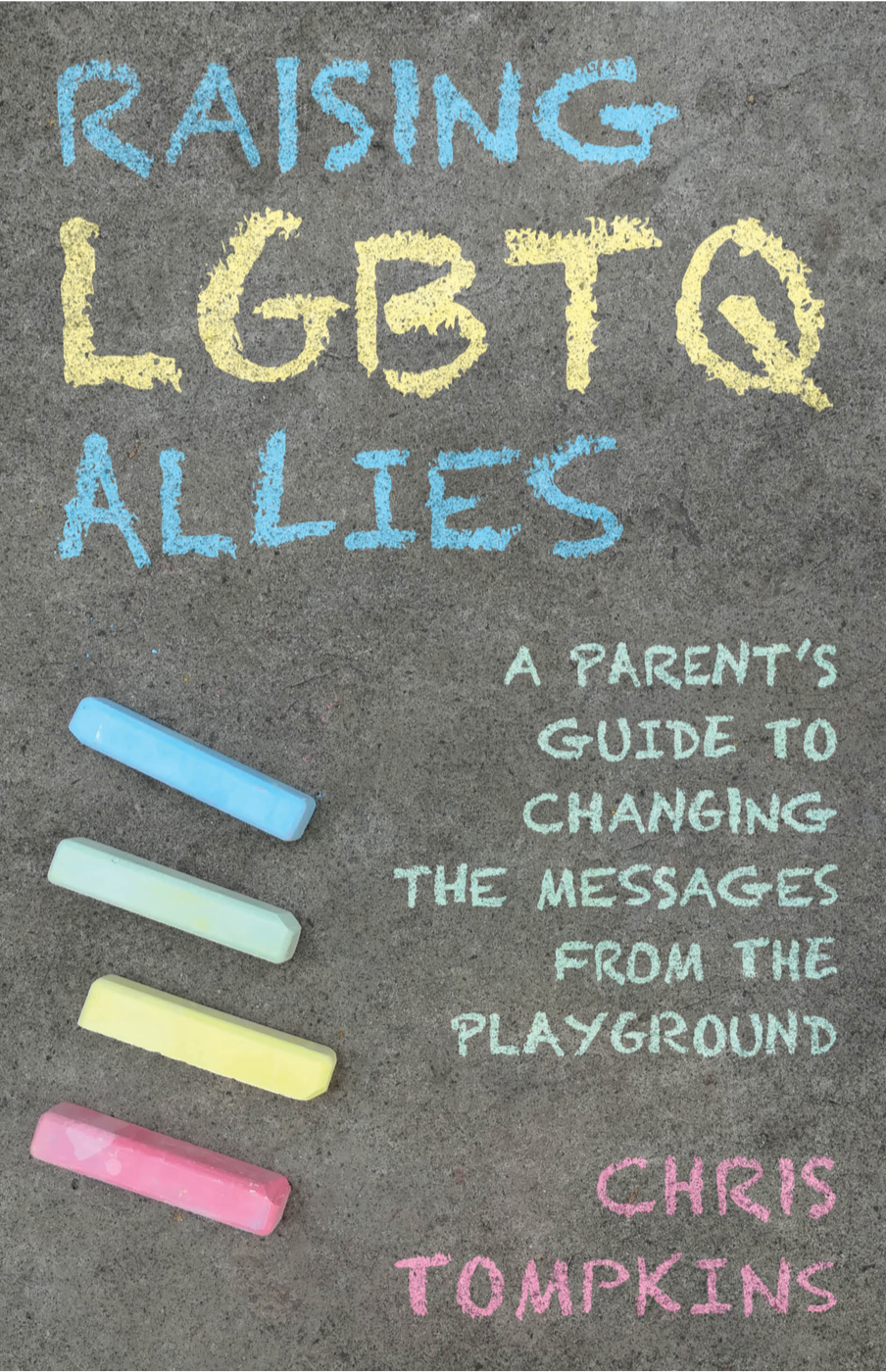
Using the metaphor of a playground for society-at-large, Tompkins’s book asks parents and teachers to join together and recognize their biases, shift the conversations around gender and relationships, and talk openly about homophobia, transphobia, and bullying. After all, the best way to help reduce and eliminate anti-LGBT prejudice is by making the topic one that’s easy to talk about at home. By doing so, you’re sending a very important message simply by being open to the conversation. Your children will pick up on that and model your behavior and become LGBTQ allies.
Having had the opportunity to read an early draft, I can honestly tell you that this isn’t just another preachy book on LGBTQ advocacy; it’s a carefully mapped-out blueprint for parents, caregivers, educators, and mental health professionals on how to prevent new generations from adopting homophobic and transphobic beliefs, while helping families explore the subconscious biases that prevent these necessary conversations from taking place in the first place. Because, as Chris points out in the book, not communicating is still communicating. By choosing to ignore these important topics, parents are sending their kids a message that being LGBTQ is bad, wrong or something that should be kept a secret. That’s what messages from the playground are—learned or passed down beliefs.
Instead, Raising LGBTQ Allies offers specific actions parents, family members, and caregivers can take to help navigate conversations, address heteronormativity, and challenge societal beliefs. The book serves as a guide to help normalize being LGBTQ from a young age. Although not every parent will have an LGBTQ child, their child will inevitably jump rope or play tag with a child who is.
I had the opportunity to sit down with Chris to talk about his new book and his mission to prevent bullying, heal homophobia and transphobia, and create a more inclusive, open-minded and supportive world for the next generation of LGTBQ+ kids. As we spoke, I couldn’t help but be inspired by his genuine commitment to create the kind of future for LGBTQ+ kids that he wishes he had growing up as a closeted teenager.
What is the most important takeaway for parents after reading this book?
“The most important things we can do for a child is affirm them and be honest with them. If there’s anything you get from this book, it’s to stay present, be honest and to always keep an open dialog with your children.”
I imagine, though, that some parents’ toxic attitudes about sexuality and gender could create real danger for LGBTQ children. Is there any concern that being honest can have an inverse effect on kids?
“I would say to use love as your guide. If you’re reading this book, my hope is that you want to be helpful. If your honest answer will hurt or harm the child, you need to pause and explore your own feelings (process it with someone else, do your own work, go to a PFLAG meeting, etc).”
The book also touches on how gay shame can negatively inform how two-dad families approach these conversations with their children. Tell me more about this:
“Just because gay men are having kids doesn’t mean they’ve been able to resolve their own internalized homophobia. Just like a family can pass down the effects of addiction, they can also perpetuate homophobia by passing down their own unresolved gay shame. Whatever we don’t heal from tends to be passed down from generation to generation.”
Unfortunately, there are many parents who secretly wish or hope their children don’t/won’t identify as LGBTQ. What do you say to them?
“We have to shift the narrative. A parent not wanting their child to grow up LGBTQ is not the problem. The problem is, why does bullying exist? By “not wanting” your kid to identify as gay, you’re placing the blame on them. Additionally, assuming that your kid is heterosexual comes from heteronormativity. It’s not about hoping your kid isn’t gay because they’ll have a tough life. Instead, we have to look at why there is bullying and dismantle that.”
Do you think public schools are ready for the type of progressive changes this book proposes (updating school curriculums to include lessons/discussions on gender/identity/sexuality and having these resources available in classrooms)?
“Yes. Consider two truths. One, the LGBTQ community has come a long way. Two, there’s still a lot more work to be done. It comes down to raising consciousness. People are more ready for this than they realize, they just don’t have the permission to have these conversations. That’s what I hope this book encourages.”
How would your book help parents of playground bullies?
“The book offers concrete steps for ways to build new playgrounds for all children. When dealing with a child who is a bully, I recommend a process of acknowledging their behavior, challenging their negative messages, and helping them forgive themselves. Once that happens, they can grow from their past experiences.”
In your book, you talk about your own struggles with substance abuse. Why did you decide to share such personal details about your life?
“Well, you’re only as sick as your secrets and wherever there’s shame, there are secrets. I told my story to show the long-term impact these messages from the playground can have on someone’s life. After finally coming out (after years of being in the closet), I realized there was something missing in my own life that I wasn’t able to identify. I was drinking a lot, experimenting with drugs—this seemed to be a common pattern among my peers. I started to realize that just because I’m gay and out, and just because I’m doing advocacy work doesn’t mean that I didn’t pick up the same messages from the playground as everyone else. I truly believe we can only take others as far as we’ve gone ourselves. So, I had to do the work and make peace with myself before I’d be able to inspire others to do the same.”
+++++++++++++++++++++
In addition to working on his master’s in clinical psychology, Chris Tompkins has been a staunch LGBTQ+ advocate for fifteen years, working with organizations like GLAAD. He’s created advocacy workshops and worked at Los Angeles Central Juvenile Hall to help support LGBTQ incarcerated youth. In other words, the guy is qualified AF. So do yourself, your children and your community a favor and check out this timely and important book today.
Creating allies and a world where closets don’t exist happens one child at a time. And it begins with parents like us. When parents and caregivers set a compassionate and empathetic example, it helps their children model that behavior. So please do your part to create allies on the playground by encouraging open and authentic conversations at home. One person can make a huge difference in someone’s life.
We all needed someone like that when we were young.
Hear Chris discuss his book on GWK the Podcast, available below, or wherever podcasts are.

